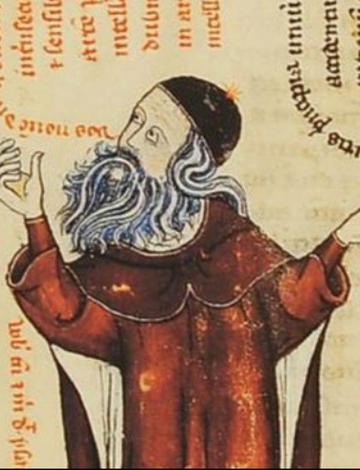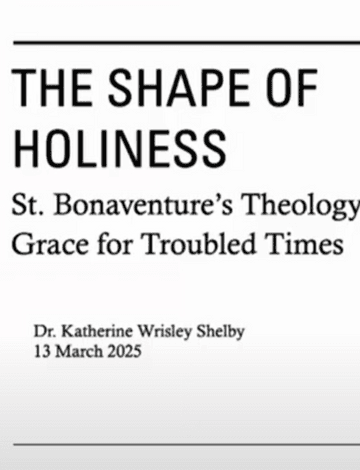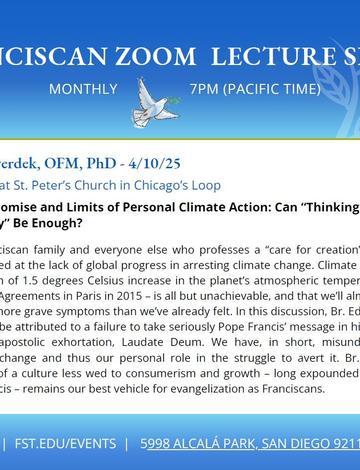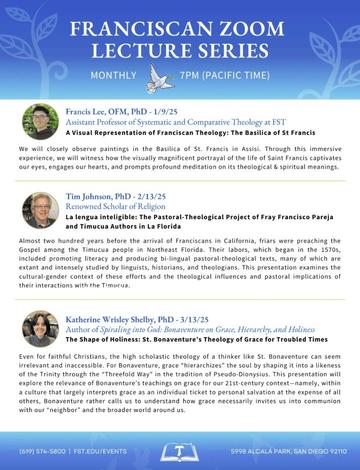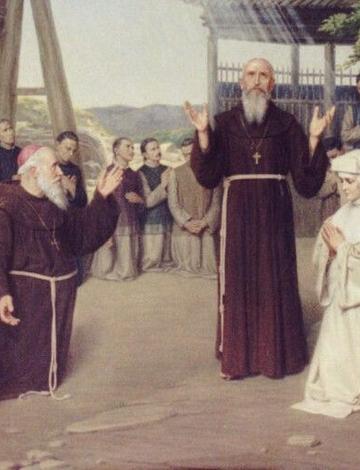
On July 8, the Franciscan family celebrates the memory of Sts. Gregory Grassi, OFM, Marie Hermine, FMM, and Companions, martyred in China in July 1900 during the Boxer Rebellion.

On July 8, the Franciscan family celebrates the memory of Sts. Gregory Grassi, OFM, Marie Hermine, FMM, and Companions, martyred in China in July 1900 during the Boxer Rebellion.
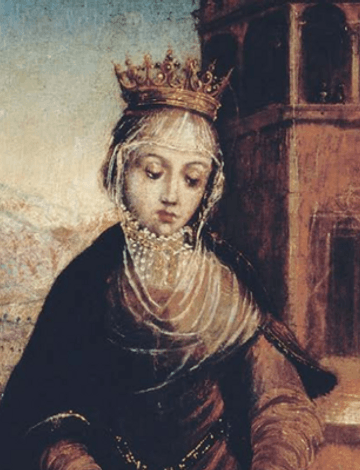
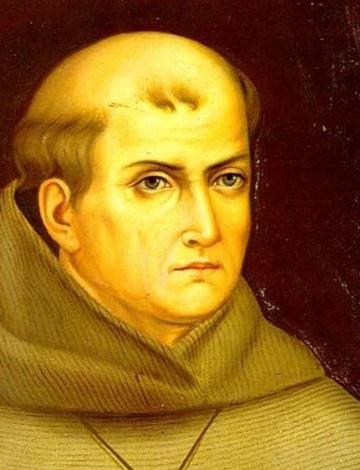
On July 8, the Franciscan family celebrates the memory of Sts. Gregory Grassi, OFM, Marie Hermine, FMM, and Companions, martyred in China in July 1900 during the Boxer Rebellion.
On July 4, Franciscans celebrate the memory of St. Elizabeth (Isabel) of Portugal, Secular Franciscan (1271-1336), known in her lifetime as a great peacemaker. (In the United States, her feast is observed on July 5 since July 4 is Independence Day.)
On July 1, all Catholics in the United States join Franciscans in celebrating the memorial of Saint Junipero Serra (1713-1774), the "Apostle of California." (Elsewhere, his feast day is August 28, his date of death.)
On June 30, the Franciscan family honors the memory of Blessed Ramon Llull, a Secular Franciscan scholar committed to mission to the Islamic world (1232-1316).
"The Franciscan Intellectual Tradition - a Tradition 'Turned Upside Down'" by Johannes Freyer, OFM, is the latest lecture of the Franciscan Zoom Lecture Series, hosted by the Franciscan School of Theology at the University of San Diego.
"The Promise and Limits of Personal Climate Action: Can 'Thinking Globally, Acting Locally' Be Enough?" by Ed Tverdek, OFM, PhD, is the latest lecture of the Franciscan Zoom Lecture Series, hosted by the Franciscan School of Theology at the University of San Diego.
"The Shape of Holiness: St. Bonaventure's Theology of Grace for Troubled Times" by Katherine Wrisley Shelby, PhD, is the third lecture of the Franciscan Zoom Lecture Series - Winter 2025 Semester, hosted by the Franciscan School of Theology at the University of San Diego.
In this presentation, Fr. Johannes Freyer, OFM, will outline the distinct concepts and thought patterns that emerged when the Franciscan form of life interacted with the patristic tradition and the newest scholastic theology.
In this discussion about the promise and limits of personal climate action, Ed Tverdek, OFM, PhD, suggests that our shortcomings can be attributed to a failure to take seriously Pope Francis’ message in his encyclical Laudato Si’ and his subsequent apostolic exhortation, Laudate Deum – and that the transformative vision of a culture less wed to consumerism and growth – long expounded by “radical ecologists” and now by Pope Francis – remains our best vehicle for evangelization as Franciscans.
This presentation by Katherine Wrisley Shelby, PhD, will explore the relevance of St. Bonaventure's teachings on grace for our 21st-century context -- namely, within a culture that largely interprets grace as an individual ticket to personal salvation at the expense of all others, Bonaventure rather calls us to understand how grace necessarily invites us into communion with our "neighbor" and the broader world around us.
